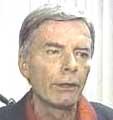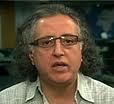How Hitler Happened
The post-WW1 Weimar Republic in Germany was the height of European civilization. Its scientists and scholars led the world. Its Bauhaus architecture was the rage. Its arts featured such luminaries as Fritz Lang, Bertolt Brecht, Kurt Weill and Thomas Mann. Yet, out of this modern democracy sprang Nazism, German fascism, and one of the most barbaric regimes ever. How did Hitler happen? It is one of the most important questions of history. What happened in Germany has disturbing resonances for our own time. Fascist-like regimes are taking power in many countries. We ignore disturbing signs at our peril from torchlight parades in Charlottesville with crowds chanting, “Jews Will Not Replace Us” to a synagogue massacre in Pittsburgh to the murder of African-Americans in a church in Charleston. What can we learn from the past to ensure it doesn’t happen again?
Recorded at Hunter College.
Interviewed by David Barsamian
Speaker

Benjamin Hett
Benjamin Hett is the author of Burning the Reichstag, Crossing Hitler and The Death of Democracy. He is a professor of history at Hunter College and the Graduate Center of the City University of New York, and holds a Ph.D. in history from Harvard and a law degree from the University of Toronto.





Benjamin Hett in NY –
Thanks David, for your time and interest in doing the interview, which as far as I can tell, got more response than any other interview I did.
Stephen in Seattle –
I want to commend you for this interview with Benjamin Hett. You bring a great deal of insight into make this really informative and interesting.
Jeffrey in Des Moines –
David’s interview with Benjamin Hett who wrote the book on the fall of the Weimar Republic is top-notch.
Martina in NM –
The Hett program is phenomenal. Comparisons with today are disturbing. Incidentally, I am from Germany.
Ira Janowitz –
Excellent interview! Clear, very informative, and very relevant to current politics in the US & a number of other nations.
Rand & Kathryn in Westlake, OR –
How Did Hitler Happen, your interview with Benjamin Hett has been on our mind. Thank you heartily.
Fred Jaeger –
The interview with Benjamin Hett was shocking. His knowledge of German 20th century history is impressive and his analysis of the fall of the Weimar Republic and the rise to power of Von Hindenburg and Hitler revealed many chilling parallels to the rise of ultra-nationalism in the 21st century. Those who ignore Mr. Hess’ lessons from the past may find us repeating the same mistakes. Among the more telling analogies I inferred was the tendency of the Germans to assume that Hitler would find himself humbled by the power of the presidency and would somehow rise to the occasion, grow more circumspect,. when in the end, as the world came to understand too well, he had promises to fulfill from his largely forgotten but best selling biography Mein Kampf written ten years before his rise to power. Also startling was Hitler’s observation that politicians were often destroyed by little lies where as someone who tells huge lies is more likely to be believed because people tend to yield to the notion that no one would consider telling such bald and outrageous claims if there weren’t some truth to them. I’m ordering his book The Death of Democracy.
Arnold in ME –
Given current situation that may be THE most important interview you’ve done.